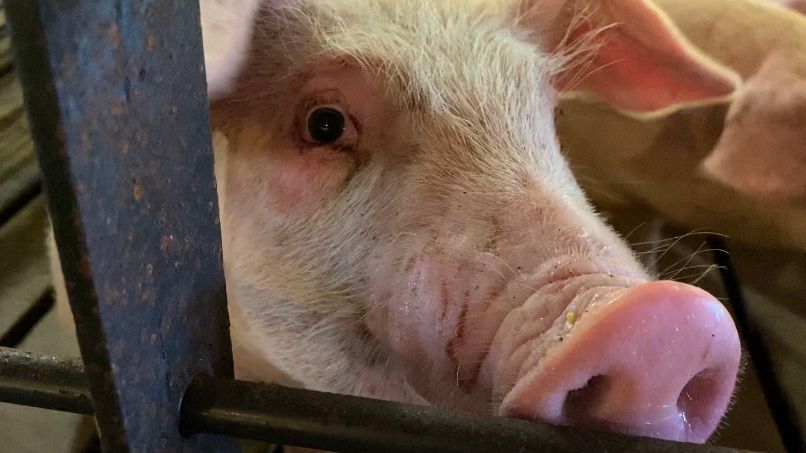WAYNE COUNTY, N.C. — Since 1979, Marlow Ivey’s family has raised hogs on their farm. She’s a fourth generation farmer, but when she went to college she didn’t want to carry on the family tradition.
“I started selling pork up and down the East Coast, and that’s when I realized there was a huge disconnect between the consumer and the farmer,” Ivey said. “So it became more about telling my AG story and educating people about farming practices.”
Now, in addition to her farming job, she works with Feed The Dialogue, a nonprofit that helps educate people on where their food comes from.
She and other pig farmers recently got a win from the North Carolina General Assembly.
In this year’s State Farm Act that Gov. Roy Cooper signed into law, one section creates a general permit for farmers to build digesters on their property.
Digesters take the pig manure and turn it into methane gas, a renewable energy source the farmers can use or sell.

Ivey says North Carolina’s hog farmers are the most regulated agriculture industry in the country and is excited about this change.
Manure management is a touchstone of hog farming, like how they apply it to farmland.
“It’s a very highly permitted and regulated system. We don’t get to apply whenever we want, however we want. We work with soil scientists to take stool samples,” Ivey said. “We work with N.C. State and other state regulators and DEQ to make sure that we are applying properly.”
Ivey can’t apply for a permit until she gets the right pipelines on her property, but says the options to utilize technology like this are great.
“Anything that we can take a nonrenewable gas and turn it into a renewable gas is the definition of sustainability, and as millennial farmers, somebody that’s hoping to pass this farm down to my children, it’s really important. We’re always striving to be better, and any advances in technology that we can use to be better farmers is what we strive for,” Ivey said.
Not everyone, however, is happy about this new section of the law.
In a statement, the Southern Environmental Law Center said this change weakens long-standing restrictions and limits transparency.
“Pollution from industrial hog operations is one of the most significant environmental justice concerns in our state. Once again, the hog industry wielded its political power to drown out the voices of families harmed by its pollution, continuing a long history of injustice in North Carolina,” the statement said.



